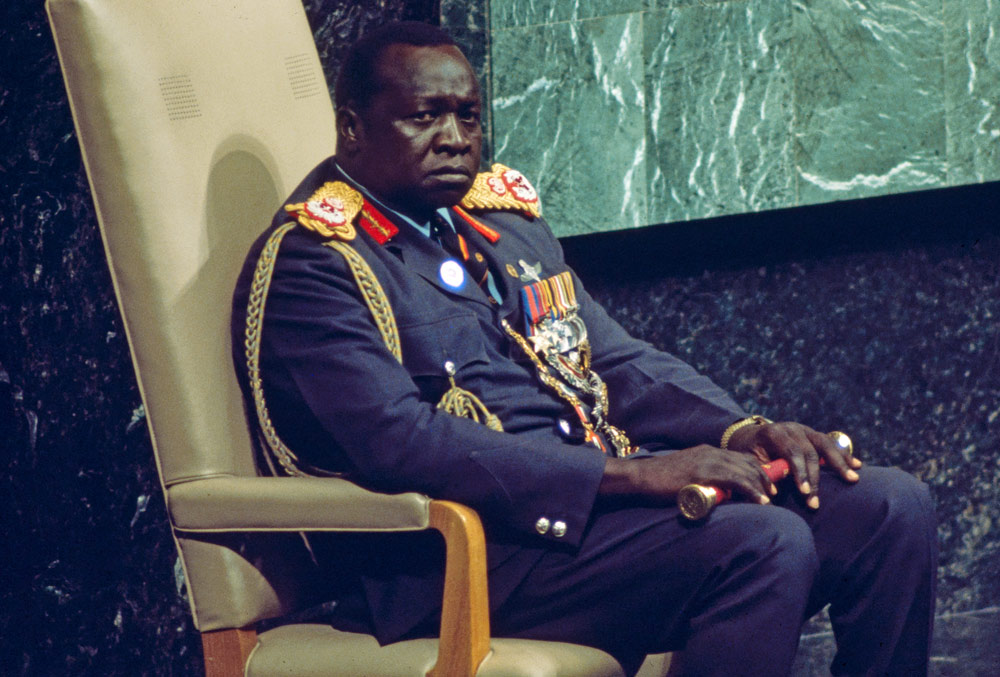Written by Derek R. Peterson
Idi Amin, the president of Uganda, boldly proposed to the British Commonwealth states fifty years ago that they let him succeed Queen Elizabeth II as the organization’s leader.
After all, the U.K. had been unable to hold onto its leadership due to a deteriorating economy, Amin thought. Furthermore, with the full decolonization of Britain’s former overseas possessions, the British empire no longer exists.
Amin made more than one attempt to change the global order. At about the same time, he advocated for the relocation of the UN headquarters to Kampala, the capital of Uganda, highlighting the country’s central location between the North and South Poles, the continents of America, Asia, and Australia.
The goal of Amin’s diplomacy was to establish Kampala as the hub of a postcolonial globe. In my recently published book, A Popular History of Idi Amin’s Uganda, I demonstrate how Amin’s administration transformed Uganda, a remote landlocked country, into a frontline state in the international struggle against racism, apartheid, and imperialism.
For the Amin administration, doing so was a means of asserting a morally necessary role: liberator of the previously downtrodden people of Africa. His reputation was boosted both domestically and internationally, which allowed him hold onto power for eight disastrous years, from 1971 to 1979.
The phony liberator?
Amin created a fiction that was blatantly false but incredibly convincing: that his dysfunctional, violent administration was genuinely working to liberate its citizens from foreign oppressors.
One of his persistent worries was the issue of Scottish independence. Amin remarked in a 1974 cable to UN Secretary General Kurt Waldheim, “The people of Scotland are tired of being exploited by the English.” When Scotland was an independent nation, it was peaceful, prosperous, and well-run. However, under the British administration, England has prospered by utilizing the talents and intelligence of the Scottish people.
His most ruthless policies were presented as liberating. Amin declared the general expulsion of Uganda’s Asian community in August 1972. A mere three months were allotted to some 50,000 individuals, many of whom had been in Uganda for generations, to finalize their affairs and depart the nation. This was called the “Economic War” by Amin.
Amin said that Ugandan Africans had been economically enslaved since the colonialist era in the speech announcing the expulsions. The goal of the Economic War was to free the Africans of Uganda from this country.
He declared that today is the day of salvation for the Africans of Uganda. Black African business owners were lining up to take over Asian-run enterprises after the deceased Asian community had abandoned some 5,655 farms, ranches, and estates by the end of 1972.
The Ugandan government released a pamphlet detailing Amin’s accomplishments when he attended the Organization of African Unity conference in Addis Ababa, Ethiopia, a year later. According to the story, Amin’s statement was interrupted by loud cheers and ovation from the heads of state and government as well as from everyone else who had the opportunity to hear it, nearly word for word.
According to the official propagandist, it was abundantly evident that Uganda had become the leader of a true African state. The resurgence of African nationalism was evident. It was evident that the speech had revitalized the African liberation movement.
Life at the front
All Ugandans—African and Asian—were devastated by Amin’s policies. However, for a while, activists all around the world found inspiration in his fight for economic liberation. The Black American head of the civil rights group Congress of Racial Equality, Roy Innis, was one of the many individuals enthralled with Amin’s government.
At Amin’s invitation, Innis traveled to Uganda in March 1973. In the same way that Jewish Americans could obtain citizenship from the state of Israel, Innis and his associates had been advocating for African states to allow Black Americans to obtain dual citizenship.
Amin’s chopper was used to transport the visiting Americans throughout Uganda during their eighteen-day stay. Innis talked enthusiastically about Amin’s achievements everywhere. Around the time of his visit, Innis penned the following apoem, which was published in the pro-government Voice of Uganda:
Your people’s lives used to be a total boring,
They were also economically distressed, exploited, repressed, and impoverished.
Then you arrived and created fresh, vibrant economic pages.
and presented your personnel with advancements in manageable phases.
Even the wisest sages were perplexed by such deft maneuvers.
The imperialists’ demise was announced by your electrifying charisma.
The economic boom in Uganda is a result of your pragmatism.
When Innis returned to Uganda in May 1973, he pledged to assemble a group of 500 African American professors and technologists to work in the country. Amin provided them and their families with free healthcare care, free accommodation, and free travel to Uganda. According to the American weekly magazine Jet, Uganda would soon transform into an African Israel, a model country supported by the expertise and efforts of Black Americans.
Innis was undoubtedly naive, as others have noted. However, many others, including many Ugandans, shared his enthusiasm. Their zeal and dedication, motivated by Amin’s pledges, kept institutions running during a period of significant upheaval. They underwrote the operating expenses of government ministries, built stadiums and highways, and erected national monuments.
Patriotism and demagoguery
A growing wave of political dysfunction quickly put an end to their aspirations. When Amin was overthrown by Tanzania’s invading army and fled Uganda in 1979, his dictatorship came to an end violently.
His demagoguery, however, endures. Demagogues of the new age say they are striving to free resentful majorities from foreign rule.
Black Ugandans were recruited by Amin in the 1970s to fight against racial minorities who were allegedly in control of the public life and economy. Today’s dominant right wing pushes resentful white Americans to believe that greedy immigrants have robbed them of their inheritance.
Amin urged Ugandans to see themselves as front-line combatants fighting a battle against outsiders that would have a worldwide impact. Some people in America now feel similarly empowered to take matters of state into their own hands. For example, a rally was held in Washington in January 2021 by the right-wing organization Stop the Steal. They seized the Capitol building and vowed to retake our nation.
Many people were captivated by the racialized demagoguery that Idi Amin propagated. It also fed violent campaigns to repossess a stolen inheritance, to reclaim properties that ought, in the view of the aggrieved majority, to belong to native sons and daughters. His rule serves as a warning to us now about the persuasive ability of demagoguery to influence people’s sense of direction.
![]()
Derek R. Peterson is the University of Michigan’s Ali Mazrui Professor of History and African Studies.







